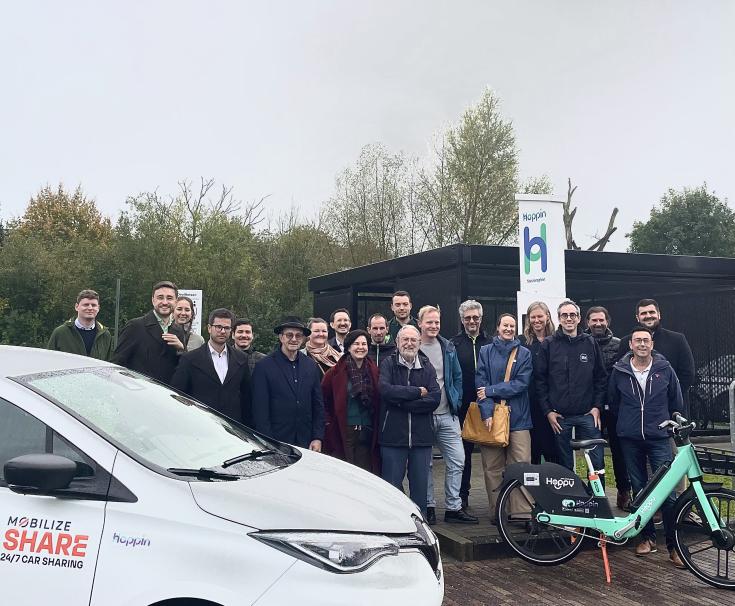Zooming in: How shared mobility is organised in Flanders

On 10 October 2024, a group of 7 mobility experts from Belgium, Denmark, Hungary, Ireland, Italy and Portugal met for a full-day study visit on shared mobility hosted by autodelen.net at Ghent (Belgium) and organised by the Policy Learning Platform.
Shared transport or shared mobility is a transportation system where travelers share a vehicle either simultaneously as a group (e.g. ride-sharing) or over time (e.g. carsharing or bike sharing) as personal rental, and in the process share the cost of the journey. The concept fits with the philosophy of a sharing economy where assets can be accessed on a as-needed basis.

Each shared car takes between 3 and 10 private cars off the street
Flanders has come a long way in introducing carsharing and bike sharing to its citizens and stands out as a role model attracting keen interest from mobility professionals from across Europe. The city of Ghent is winner of the international carsharing award for having managed to triple the number of car-sharers in only 5 years. But perhaps even more noteworthy is the achievement of small municipalities in Flanders that have managed to introduce car-sharing in their territories.
In the morning, the visitors heard presentations from Solva, an intermunicipal structure that made a framework contract for shared cars in 15 rural municipalities, organised a common communication campaign and is active in the field of facilitating mobihubs in its municipalities. The NGO Dégage explained how it supports the sharing of private vehicles and how local governments can support private car sharing which is a very good start when there is a lack of shared cars in the cities and municipalities.
As autodelen.net is a partner in Interreg Europe project SMAPE, it also invited two of its partners to contribute with their examples to the study visit. The Walloon Organising Authority for Public and Shared Transport presented its new regional framework on shared mobility, and the City of Bremen explained how it had launched one of the first car sharing action plans in Europe more than 10 years ago, making it a Lighthouse city in term of car sharing.
In the afternoon, the group went on a field visit to the small municipalities of Brakel, Oudenaarde and Kruisem who all have good shared mobility approaches and action plans, modern mobihubs and several modes of shared mobility. The visitors were welcomed by the local authorities and could visualise in a real-life context what is means to offer shared mobility in villages, what space requirements there are, and how car-sharing is implemented in practice. To get a feeling for shared mobility the group used shared cars for the field trip.
Key learnings
- A new scheme needs time, adopt a long-term approach (10 years +).
- Location is crucial, the right placing of the cars is the most important decision.
- Critical mass is important, 1 car alone does not start a successful scheme.
- The scheme must be trustworthy (sure to get the car when reserved, and working)
- For private car-sharing: the insurance has to be strong and provide full coverage for all, owner and user.
- Communication campaigns with a clear message repeated over and over again are needed
- Ambitious target setting by public authorities helps.
- Parking policy is very important for car-sharing.
At a de-briefing at the end of the day the participants confirmed the added-value of the detailed presentations coupled with the real-live cases and pledged to take home plenty of new ideas and knowledge regarding the practical implementation of shared mobility schemes.

